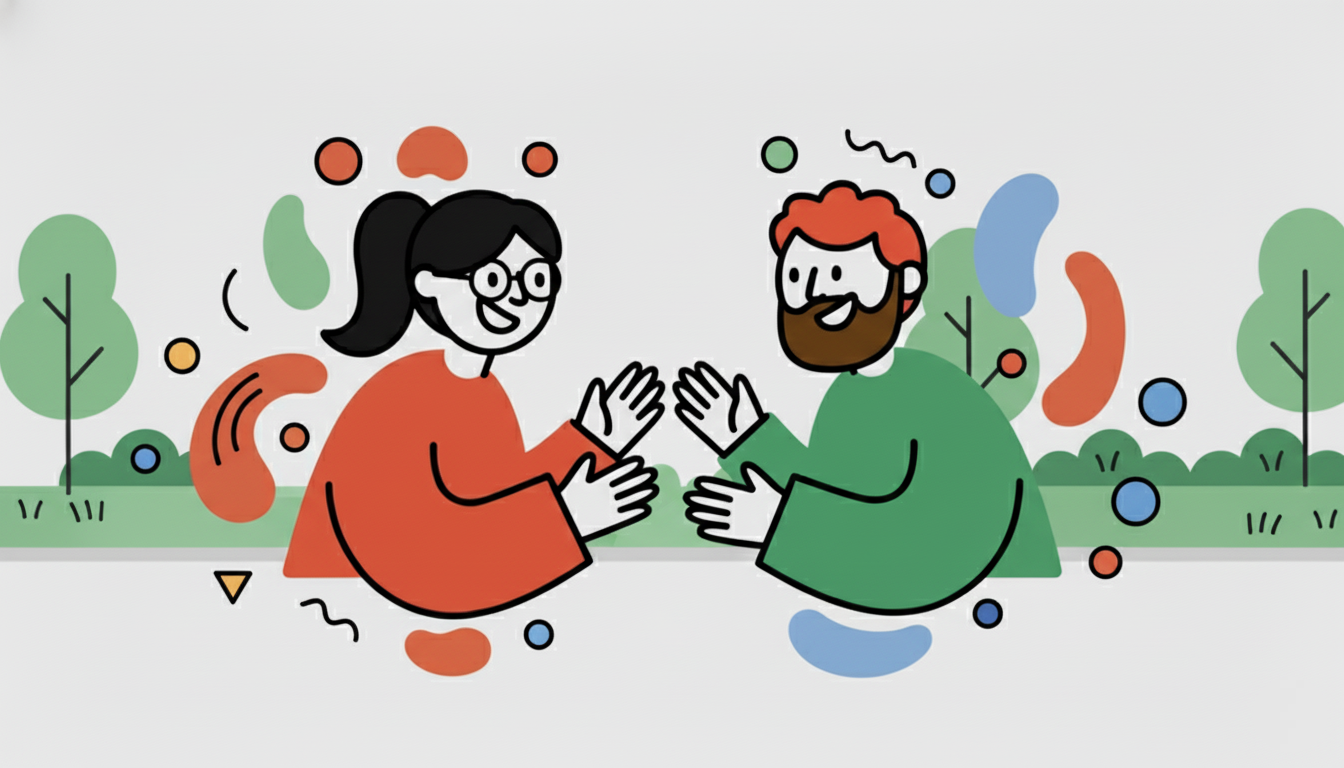
Oxymoron. You probably learned its meaning in high school English class but may have forgotten what it means. It’s when two contradictory terms are used together.
Platonic. It’s the description of a relationship without sex or romance.
So how can there possibly be platonic lovers? The term is an oxymoron.
Or is it?
Blame it All on Plato
The Greek philosopher Plato, who lived from 428-348 BC, lived to the ripe old age of 80, unheard of for those times. During his life, he wrote a ton of philosophical treatises, one of which was a series of dialogues among fictitious characters in a work titled “The Symposium,” in which the characters discussed the concept of love.
The conclusion? Platonic love is the highest form of love. It is both without a romantic relationship or a sexual relationship but instead is a deep intellectual connection between two people based on mutual admiration and respect.
And so, a platonic relationship, based on platonic love, is not an oxymoron at all. Platonic and romantic relationships just don’t go together. Platonic love is also absent of sexual desire for a romantic partner or physical intimacy. In fact, physical intimacy, sexual attraction and any type of romantic connection are non-existent.
Instead, there is a deep friendship and a deeper connection than many in “normal” romantic and sexual relationships have.
Differences Between Romantic Love and Platonic Love
The Story of “When Harry Met Sally.”
Two college graduates, Harry and Sally, share a ride from Chicago to New York City to begin their new careers and lives. During the ride, they have a discussion about whether a guy and a gal can have a successful platonic relationship that is totally non sexual and void of any romance – just a friendship and nothing more.
When they arrive in New York City, they part ways.
Five years later, they meet up again on a plane and spend time catching up. Harry is getting married, and Sally is in a relationship. Again, they part ways, understanding that they really do have a platonic friendship.
Fast forward another five years. Harry and Sally meet again at a bookstore, and that leads to a dinner when they again pay catchup. Harry’s marriage has gone south, and Sally and Joe have broken up too. Harry admits that human beings really can have a deep friendship that is platonic.
Following this meetup, Harry and Sally begin to stay connected, mostly by phone, and continue to share life’s challenges, give each other unwavering support as any close friend would do. Ultimately, they fix up one of Harry’s buddies with a close friend of Sally. They connect and decide to marry.
At the wedding, Harry and Sally have a serious argument and part on bad terms. It is shortly after that when Harry realizes that his platonic love for Sally has evolved into a romantic, passionate love, and he proposes. Sally accepts, and they begin to plan their wedding.
The point of this story is not that platonic love often turns into romantic love. The movie just needed a happy ending. The point is that two adults had a true platonic love that nurtured their souls contributed to their mental health.
Unpacking the Differences Between Romantic and Platonic Love
Both types of relationships enrich people in different ways. Here’s how.
Emotional Needs
In romantic love relationships, partners are expected to “be there” for each other, and, in most cases, the expectation is that they will be faithful. But romantic relationships also come with uncertainty, like the worry that it will end with the pain and heartache that can often come with it.
In platonic love relationships, the bonds are formed by the sharing of interests, ups and downs, a history, and knowing that they will always be there for each other, no matter what. They can be totally honest with one another, and such relationships may easily involve many people in their orbits, without the jealousy and competition that can often pop up in romantic relationships, especially when there is a sexual element involved. This is true even with same sex couples.
Physical Intimacy (Affection)
Romantic relationships come with lots of physical affection – kissing, hugging, handholding, and, yes, sexual activity. Couples demonstrate their affection with these outward signs and come to expect them. And when they don’t, they can become stressed and fear that they are headed for a breakup.
Physical intimacy with platonic love usually consists of a hug, a high-five, or perhaps an arm around a shoulder to comfort someone going through a hard time. There is no physical attraction in platonic love.
Exclusivity
It is pretty normal in romantic relationships to expect that two people in a relationship will be exclusive and based on commitment to each other, unless, of course, they have agreed on an ethical non monogamy lifestyle.
Platonic relationships work differently. There are often relationships among many different people with no expectations for exclusivity. Even when a couple is in a platonic love relationship, they have friendships with plenty of others that never turn into extramarital affairs as they might in romantic ones.
Sex
Sex is usually a big part of a romantic relationship. It brings joy to both partners and serves to strengthen their bond.
Sex is not a part of platonic love. This bond is intellectual, emotional, sometimes spiritual, and serves as a means for mutual admiration, respect, and support.
It’s important to remember that almost every person who is in a romantic relationship will also have a good number of platonic relationships separate from their romantic partner, and this is a healthy thing. There are many benefits in platonic relationships.
The Benefits of Having Platonic Relationships
Platonic friendships bring a lot to your table. Women and men both benefit from such relationships in so many ways:
- Companionship with platonic friends gets you out and about, enhances your mood, and keeps you active socially.
- Having fun, laughing, and enjoying being around friends reduces stress and anxiety.
- When others validate your thoughts and feelings, your self-esteem and self-love improve.
- Emotional support when you are going through bad times helps you get through them
- Solid social connections improve physical and mental health, according to lots of research
- Through conversations with different types of friends, you gain more perspective, understanding, and a sense of the world around you.
So, just who are all of these groups of platonic friends men and women have?
Types of Platonic Friendships
Platonic relationships for men and women come in several types. While these may not be all its forms, these are the most common.
Personal Friends
Many of us have friends who have been with us since childhood or at least our teenage years. These may possibly be the most intimate of platonic relationships because they have been so enduring, and every person in such relationships has a natural sense that they can share most anything within this group. This group can be made up of both men and women but there is absolutely no sexual desire involved. These souls will probably be connected for their lifetimes.
Co-Workers
At the workplace, we will have a variety of relationships. Many of these will be formal and without any intentions of becoming the least bit intimate.
But there are other co-workers with whom we establish close friendships. We just like being around each other, we socialize together, and our friendship grows the longer we hang out with each other.
Now we may not have the desire to share the most intimate of details about ourselves in the same way we do with those lifelong friends, but we would still describe the friendships as close.
These friendships are important because they do give us emotional support at work and are a means to stay social in a non sexual environment. Any person who has such friends at work is lucky indeed.
Family Members
This is a bit more complicated. There are family members with whom we share mutual respect and yet we would not describe our relationship as close. Nor do we desire it to be.
But there are others in our family, immediate or extended, we have deep connections with and would describe as persons we can confide in and look to for support when we need it.
Mentors
These bonds usually happen in school or work settings.
Some teachers have made such an impact on us that we have continued to maintain contact long after we are no longer in their classrooms. We look to them for advice and help in certain areas of our lives.
There are also mentors in the workplace, those who have taken an interest in our growth and want to see us succeed. We can confide in them when we have ideas or when we face challenges and count on them for the right advice and support. These connections, although not intimate, can be enduring. And we may still stay in contact even when we do not share the same workplace anymore.
Other platonic relationships pop up where we least believed they could happen. We meet someone in a coffee shop or a bar, begin a conversation, and agree to meet up again. Over time, we develop a closeness with that person that we would not have believed possible. Yet, here we are, sharing our lives with each other as if we had known each other forever – some term these soul mates.
Do you feel you are lacking in platonic relationships and want to develop some? Here are a few tips to do just that
How to Develop Platonic Relationships
Here’s a few ideas:
Find Others With the Same Interests
Are you a wannabe artist? A wannabe gourmet cook? A wannabe DIY auto mechanic, writer, or a woodworker? Then join groups and organizations of others with these interests. Take a couple of classes and meet people of the same ilk. You might just develop some close friendships. While they may not be of an intimate form at first, closeness may develop over time. And such connections are always healthy.
Be Friendly When Approaching Others
You may be at a social gathering, in a class, or just hanging out at a bar. Initiate a conversation if you’d like to get to know someone. Ask them questions about themselves, don’t hog the conversation talking about yourself. Listen and give positive feedback. This is how friendships begin.
Be Honest, Open, and Supportive
You don’t have to spill all the intimate details of your life, your successes, your failures, and your struggles. You can communicate honestly in generalizations about these things at first.
But be open to listening to what they have and want to tell you about themselves. They may be ready to reveal things you did not expect yet. If they do, be supportive and tell them you are there whenever they need a listening ear.
So, you are on your way to some newer healthy platonic relationships, and you already have some established ones to nurture. Let’s unpack how you nurture them and keep those bonds strong.
Maintaining Platonic Relationships
Any therapist will tell those who are in romantic relationships that their relationships take work, if they are to last. Platonic relationships are no different.
So, how do you nurture those bonds and connections? For anyone who is in or has been in a romantic relationship, these strategies will seem pretty familiar.
Maintain Mutual Respect
Much of this means listening to another’s opinion, position, and perspective even when you disagree. It means being considerate of the priorities and schedules they have and not intruding on them. And above all, boundaries must never be crossed.
Make Mutual Trust a Priority
Can your platonic friends count on you to be there for them when you say you will? Do you keep your promises.
Are both of you sharing your thoughts and feelings honestly without worry about criticism or judgement?
Put Support at the Forefront
Are you both there for each other when you need support? Do you lend an understanding ear
Do you support their goals and dreams and celebrate their joys and successes?
Regular Communication
With some platonic relationships this is easy. You see one another often, and your connection is maintained. With others, you have scheduled get togethers.
But be mindful of those platonic relationships in which physical connections are not regular. Perhaps you live far apart. Companionship also happens by phone, email, and messaging, so make sure that happens on a regular basis and that you are available with that listening ear.
Wrapping it all Up
Plato’s Symposium has left us with food for thought. Perhaps platonic relationships really are the far superior ones. They certainly come without worry, stress, and anxiety. And they are certainly good for our mental health. It’s not that we should shun other relationships. But we should make sure that our platonic ones are nurtured and maintained for a balanced and happy life.
Find a healthy communication rhythm
Staying in touch helps maintain a strong platonic relationship, so text or call to see how your friend is doing. Be interested in your friend’s life and experiences to show you care. Spend quality time together to create shared experiences.
Handle conflicts mindfully
Conflicts are natural in any relationship, so don’t let problems fester. Address them as soon as they arise to prevent misunderstandings and resentment. Avoid blame and focus on finding a solution that works for both of you. If you’ve made a mistake, apologize sincerely, and be willing to forgive your friend’s mistakes, too. This can help heal and strengthen the relationship.





